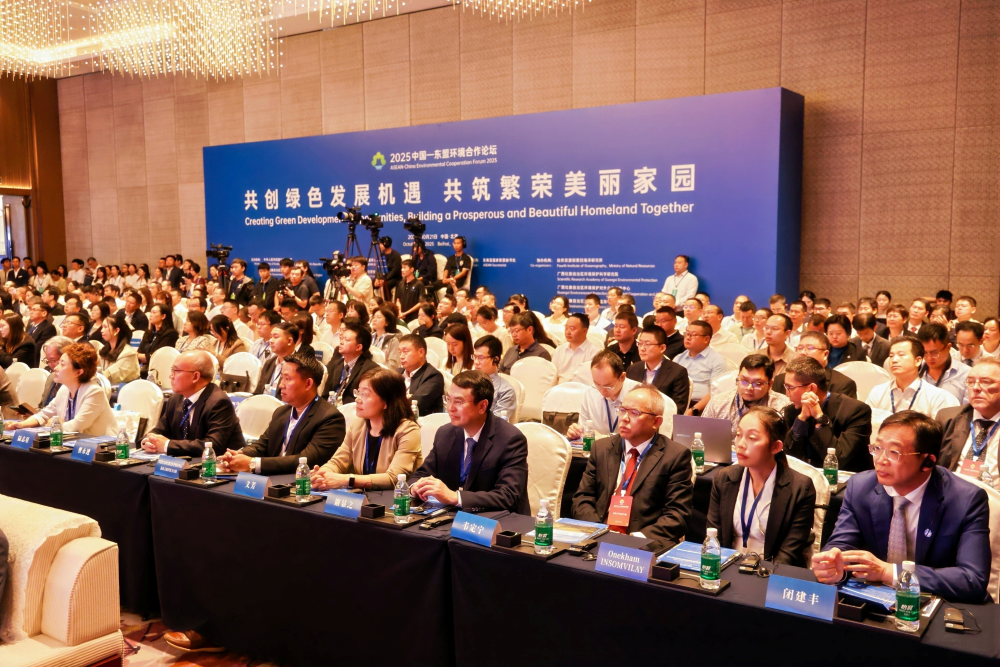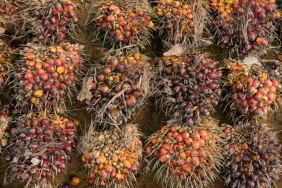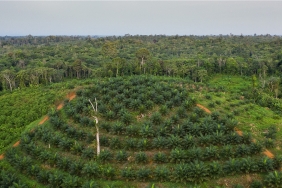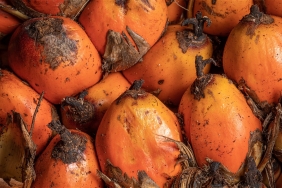ADVANCING GREEN VALUE CHAIN PARTNERSHIPS: WWF INDONESIA AT THE CHINA–ASEAN ENVIRONMENTAL COOPERATION FORUM 2025
WWF-Indonesia participated in a series of activities during the China–ASEAN Environmental Cooperation Forum 2025, held from 16–23 October in Beijing and Beihai, China. This visit marked a significant moment to strengthen environmental diplomacy and promote the transformation of sustainable commodity trade, particularly in the palm oil sector.
Strengthening CPOPC–FECO Synerg
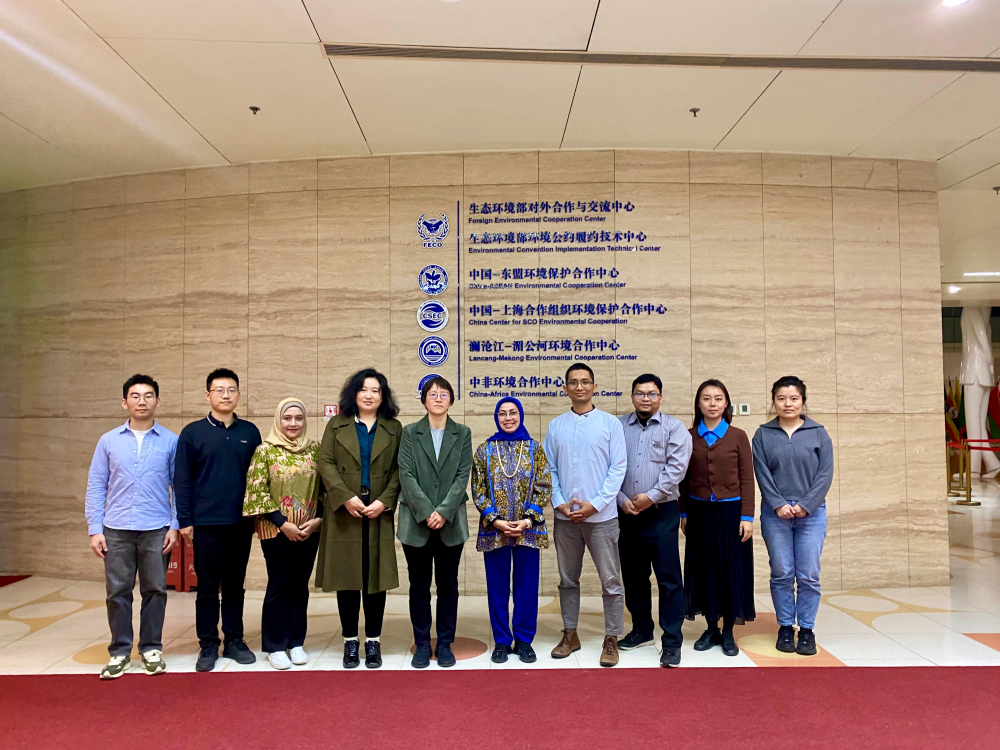
A key highlight of the visit was the strategic meeting between the Council of Palm Oil Producing Countries (CPOPC) and the Foreign Environmental Cooperation Office (FECO) of China’s Ministry of Ecology and Environment, held on 17 October 2025. Facilitated by WWF-Indonesia and WWF China, the meeting aimed to explore collaboration in building a green value chain partnership across the region.
FECO expressed its commitment to supporting the sustainable transformation of palm oil, promoting green investment and trade, and enhancing dialogue with producing countries such as Indonesia and Malaysia. Representing CPOPC, Deputy Secretary General Musdhalifah Machmud emphasized the importance of cross-border collaboration to advance a deforestation- and conversion-free (DCF) trade system.
WWF-Indonesia advocated for the integration of DCF principles into bilateral trade standards, aligning with national regulations such as the Indonesian Sustainable Palm Oil (ISPO) certification and responding to growing global demands for transparency and sustainability.
China–ASEAN Environmental Cooperation Forum: A Strategic Platform for Environmental Diplomacy
This year’s China–ASEAN Environmental Cooperation Forum carried the theme “Creating Opportunities for Green Development and Building a Beautiful Homeland.” The forum brought together high-level officials from China and ASEAN member states, as well as representatives from international organizations, the private sector, and research institutions.
In her keynote address, Musdhalifah Machmud highlighted the strategic role of palm oil in supporting green development across tropical regions. She called on ASEAN countries to embrace sustainability as a foundation for prosperity and to drive inclusive, low-carbon, deforestation and conversion-free trade transformation.
The forum also served as a platform to discuss various initiatives, including the China–ASEAN Environmental Cooperation Strategy and Action Framework 2026–2030, which aims to strengthen climate governance and sustainable development across the region.
Sub-Forum: Green Value Chain Partnership under CAFTA 3.0
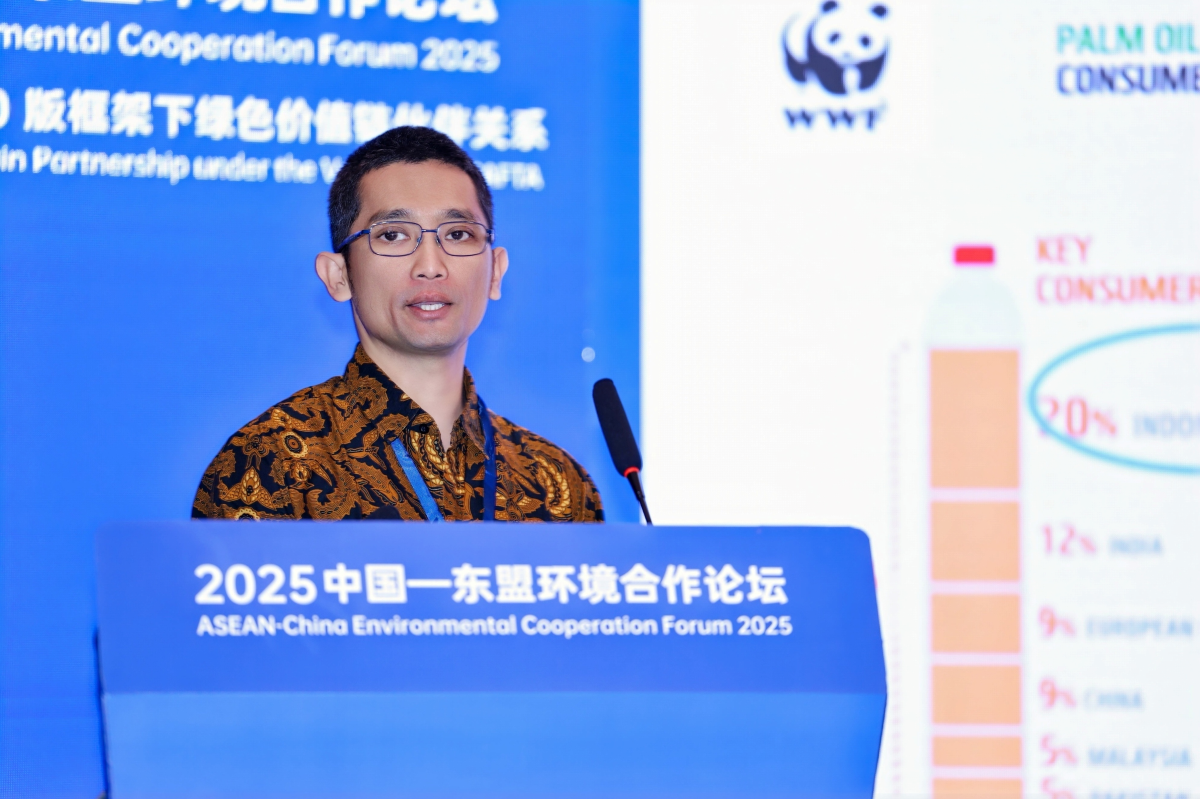
WWF-Indonesia also took part in the sub-forum titled “ASEAN-China Green Value Chain Partnership under the version 3.0 CAFTA”. The session focused on strategies for integrating green supply chains from upstream to downstream, and the importance of harmonizing standards and policies across countries.
Speakers emphasized that transforming value chains into green, sustainable systems is not only a shared vision but also an urgent necessity in the face of global climate change. Angga Prathama Putra, Sustainable Commodities Lead WWF-Indonesia, fully supports this initiative and continues to advocate for the inclusion of DCF principles in international trade standards.
Conclusion
WWF-Indonesia’s participation in the China–ASEAN Environmental Cooperation Forum 2025 underscores its strong commitment to advancing environmental diplomacy and regional cooperation. Through the synergy between CPOPC, FECO, and ASEAN partners, WWF aims to contribute to building a greener, more inclusive, and resilient future for the region.

